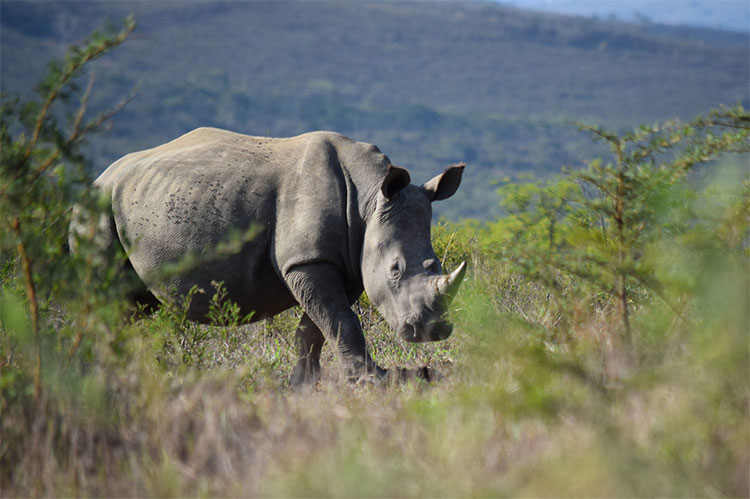Get the eggs from the last two individual white rhino on Earth
As planned, the eggs of the two rhino individuals will be used to artificially fertilize and the sperm is removed from the last male of the northern white rhino that died in March 2018.
Kenyan scientists have succeeded in collecting eggs from two of the last surviving Northern white rhinos on Earth to maintain the race of animals that are on the brink of extinction.
This is also the first time in the world that scientists have carried out the collection of rhino eggs.
According to a reporter in Africa, it is planned that the eggs of the two rhino individuals will be used to artificially fertilize the sperm that were removed from the last male of the Northern white rhino. March 2018.

A white rhino can be found at Kruger National Park Nature Reserve.(Photo: VNA).
Currently, two ovaries with 10 fruits taken from the above two rhino individuals have been sent to Italy for preservation according to the strictest procedure.
Information about the project, Mr. Richard Vigne, Director of Ol Pejeta Conservation Area in Kenya - where currently takes care of the last two individuals of the Northern White Rhino, emphasizes this is a historical milestone in the effort to save species. This item is in great danger of extinction.
According to Vigne, scientists will study the optimal method of artificial insemination to produce a herd of rhinos with about 20 individuals.
If successful, the rhinoceros herd will continue to be bred in sufficient quantity to be released to the natural environment in Central Africa.
In March 2018, the last individual male white rhino in the world died in the Ol Pejeta reserve for age reasons.
This 45-year-old rhino individual named Sudan was previously considered a "magnet" that attracts visitors to the Ol Pejeta conservation area in particular and the country of Kenya in general.
While the Southern white rhino currently has about 20,000 individuals mainly distributed in South Africa, the number of Northern white rhinos has dropped significantly due to hunting and loss of wildlife habitats.
Since 2006, humanity has no longer recorded any northern white rhino individuals living in the natural environment.
- Only 4 white rhinos remain on Earth
- The only male white rhino left in the world
- Rhino is a rare white color born
- The only male white rhinoceros on Earth
- Death of Sudanese white rhino and warning to all humanity
- South Africa combats rhino poaching with chips and DNA
- Rhino protection campaign
- White rhinoceros is at high risk of extinction
- The piece of rhino horn and the man spirit
- Stem cells save the Northern white rhino from extinction
- The last male North African white rhinoceros died
- The first southern white rhinoceros was born by IVF
 Animal 'suffering' after hibernation
Animal 'suffering' after hibernation Why do goats climb well?
Why do goats climb well? Scientists were surprised to see chimpanzees eating turtles
Scientists were surprised to see chimpanzees eating turtles Giant catfish died deadly due to drought in Thailand
Giant catfish died deadly due to drought in Thailand